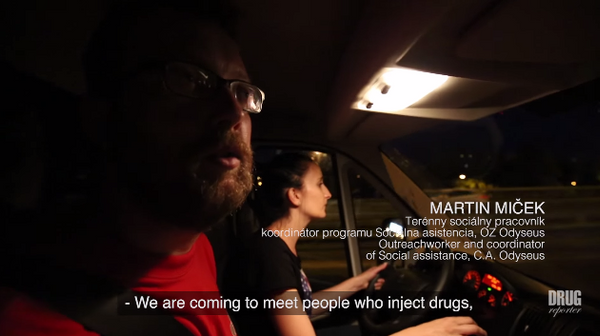Odyseus calls for common solutions on drugs in Slovakia
Slovakia needs to find a common solution to guarantee harm reduction for all in need - argues a local harm reduction provider, Odyseus, in a video produced jointly with Drugreporter.
Only a small proportion of Slovakian injecting drug users have access to low-threshold services. As an indication, according to the most recent (2008) prevalence data, there are between 8,200 and 33,500 people who use drugs heavily, mostly using methamphetamine and heroin.1 In 2013, there were 2,252 clients registered with local harm-reduction NGOs. In Slovakia, the availability of syringe exchange programs is very limited – there are two outreach programs in Bratislava, the capital, with one NGO operating in each of three towns (Trnava, Nitra, Sereď) and one providing services in the city of Košice. The central region of the country remains without a single syringe exchange program.
These harm reduction NGOs (Odyseus, Prima, Združenie Storm, Pomocná ruka) struggle every year for survival. State funding for drug prevention declined by more than 50 percent during the period 2010-2011. Most of the state budget allocated to drug issues is earmarked for public order and law enforcement, and the finances specially allocated for meeting the goals identified in the Slovak drug strategy are spent in mass media campaigns about drugs, with only 5% of this budget spent on harm-reduction outreach programs. HIV prevalence remains low; there is, however, an HCV epidemic among people who inject drugs in Slovakia.
In the new video created by HCLU, Odyseus C.A., a harm reduction organization founded in 1997, highlights the problems related to drug use in Slovakia, such as lack of services, inadequate funding for these services, criminalisation of drug users, negative attitudes towards syringe exchange, and community frustration on the issue of discarded syringes.
Click here to read the full article.
Keep up-to-date with drug policy developments by subscribing to the IDPC Monthly Alert.
